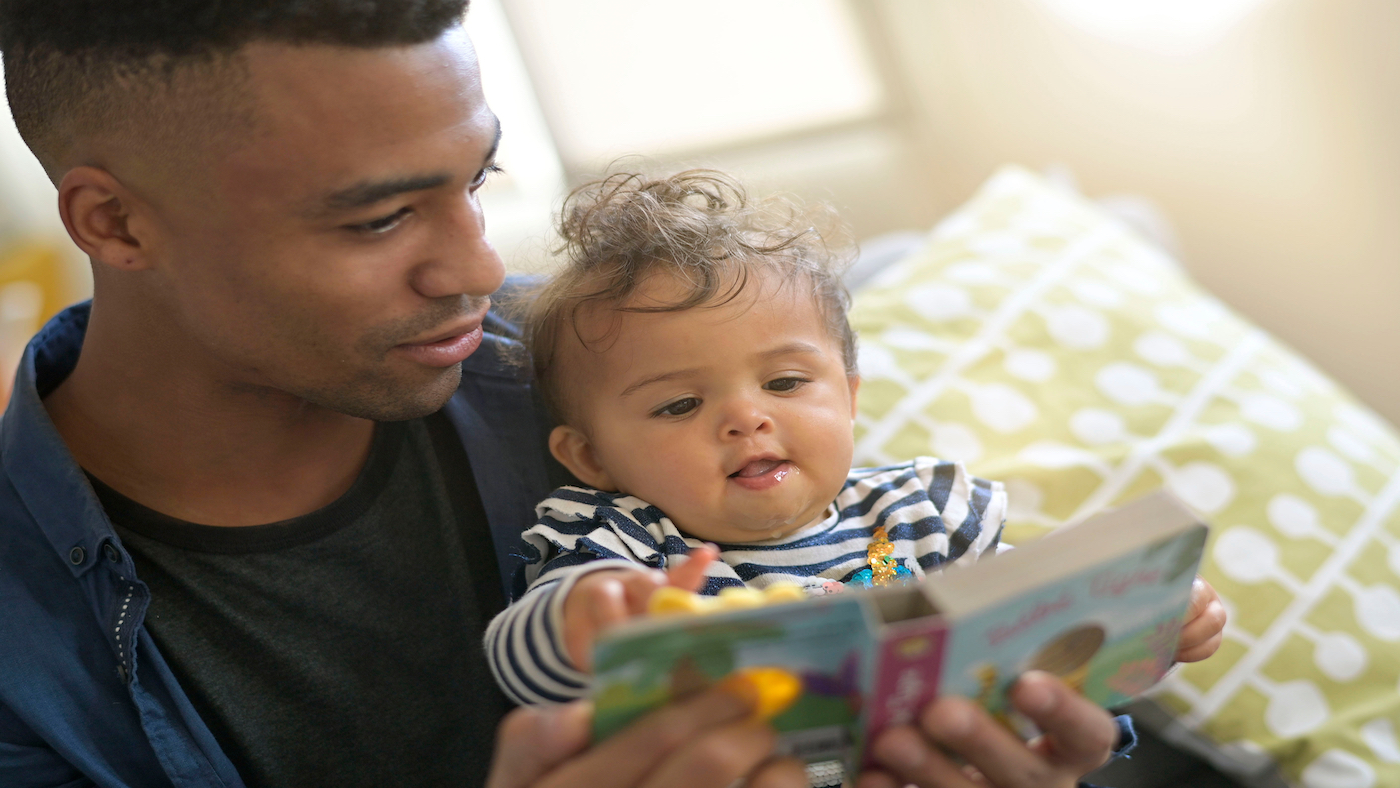Reading to your child during their first five years – what does research tell us?

It can feel strange reading books to your newborn baby, and although 95% of parents in a recent survey could see reading was important – just 77% started reading to their child before they were one, and 28% said they don’t find reading to their child easy.[1]
In this week’s research article, we’re going to look at the benefits of reading to your child whatever their age and give you some ideas for sharing stories together.
We know children’s brains develop faster during their first five years than at any other time in their life.[1] Simple things, like reading stories, are brilliant for laying the foundations for a lifetime of learning.
Why read to your little one?
The Book Trust have summarised the evidence about the benefits of reading for children. They say children who read:
“Are more likely to overcome disadvantage caused by inequalities.
Are more likely to be happier, healthier and experience better wellbeing and self-esteem.
Are more likely to do better at school and make more progress across the curriculum.
Are more likely to develop empathy and creativity.”[2]
Reading together is not only about what your child might learn about words, sounds, or the world from a story but about feeling secure and relaxed.
For all these reasons, it is never too early to start reading together, even if your child is still a young baby. When you read to your child (no matter their age) choose books you enjoy, find a comfortable place, use different voices, even sing if you want to – make this time fun for you both.
Reading together supports your child to master skills
Books and stories can help your baby or child to pay attention, point out objects, learn words, think about problems and find out more about the world.
Wherever your child is on their skills journey you will notice activity ideas that use books and stories.
If you look in the ‘discover more’ section (near the bottom of the Today screen), you will find books and stories recommendations from our child development research team, all of which support the skills your child is mastering now.
One study found that children aged 3-5 who have a bedtime story slept longer than those who didn’t. [3]
While this is an exciting finding, it’s important to remember this is an average so you might read a bedtime story and your child still only seems to sleep for a couple of hours, but know they will have gained lots from being read to in other ways.
Bedtime can be a perfect time to fit in a snuggle and a story – and a regular sequence of things you do as part of a bedtime can be a good way to get a routine of sleep.
Tips for reading together
Find somewhere comfortable for you both
This might be cuddled up on the sofa, lying on the floor or with your child standing while you sit and read (for an exciting story your child might want to be able to stand up jump around!)
Have fun
Use funny voices, change the story, laugh – even sing if you want to!
Pause
Give your baby or child time to look at the pictures, talk about the story or just add their own bit of babble along to a tale they love.
Repeat favourites
Your baby or child might have a favourite story, don’t feel like you have to hide this away – repetition is a brilliant way to get them to join in.
Use a library or book swap
While favourites are great, you might want a change, so have a look on your local authority website and find out where your nearest library is. You might also find the library has free rhyme or story times you can go to.
You might also be able to swap books in other ways, either with friends or at a local book swap if there is one near you.
And finally - start when they’re young and keep reading – the research is clear that both babies and older children benefit from reading books with an adult.
References:
[1] Book Trust (25 May, 2023). Children’s reading habits in the early years. family-survey-briefing-1-reading-in-the-early-years-2023.pdf (booktrust.org.uk)
[2] Book Trust (n.d.) The benefits of reading. benefits-of-reading---booktrust-2023.pdf
[3] Jones, C.H. & Ball, H. (2014). 'Exploring socioeconomic differences in bedtime behaviours and sleep duration in English preschool children'. Infant and child development, 23(5), 518-531.